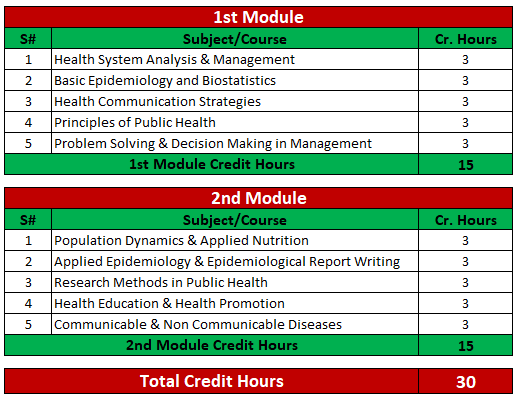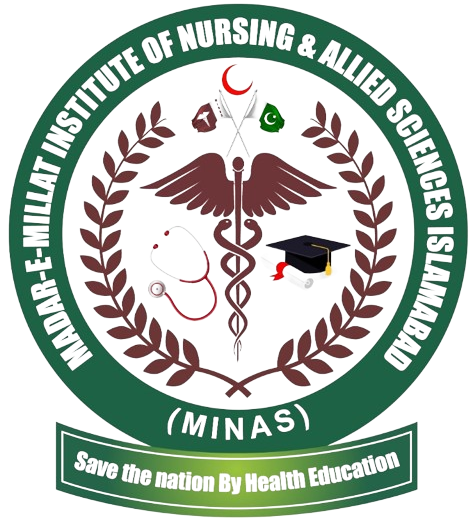POST GRADUATE DIPLOMA IN PUBLIC HEALTH (Duration One Year)
INTRODUCTION
Pakistan has one of the best-knitted networks of health care facilities in public sector; and a very large private sector. The public sector facilities mostly, face the problems of underutilization and under functioning along with the technical and allocative inefficiency. This situation has been described in different donor reports and evaluations carried out by the Government of Pakistan. The management of private sector has also been considered inefficient and not very effective. Specific Management tools and techniques, such as strategic management, management by objectives, quality assurance methods, monitoring and evaluation of the health systems outputs and outcomes, and economic appraisal are not practiced in both public and the private sector. One of the primary reasons for all these issues is that most health managers lack expertise in health management. Insufficient management knowledge, inappropriate skills and lack of expertise in management, further undermine their capability to improve the health system. The way forward is the continuous education and training leading to the capacity building of the midlevel health managers and encouraging them to apply their knowledge in their respective settings. On the other hand, there is no well-developed and properly facilitated management training being offered in Pakistan which can fulfil the need of the health managers in public as well as private sector.
The need for assurance of Quality and Regulation of Health care is now a Legal Requirement in all the Provinces of Pakistan. Medical litigation is on the rise and Healthcare institutions are bound by Government Regulations to deliver safe and excellent care to patients at all times This is an advanced Level Course being conducted for the first time in Balochistan.
OBJECTIVES
The graduates of the PGD PH program will be able to:
- Train competent, committed and skilled public health professionals.
- Assist in translation of knowledge into sound evidence-based policies and practices.
- Prepare leadership in public health.
- Develop, administer and evaluate health policies and programs.
- Participate directly in efforts to improve the health of the community using community based and health systems’ assessment of services.
- Conduct basic and applied research relevant to the description, risk factors and interventions for the resolution of health problems in the human populations.
- Describe basic methods of quantitative analysis being used by health managers.
- Demonstrate change management, communication and leadership skills.
- Define what quality means from the standpoint of the variety of stakeholders. In order to achieve these core competencies each course has been tailored with its learning objectives which further lead to enrichment of the course content.
SCHEME OF STUDIES

FEE STRUCTURE

Eligibility
- Bachelors in Medical Sciences (MBBS, BDS, Pharm D, DPT, DVM, BS Nursing, BS Midwifery, BS Public Health, BEMS, BS Allied Health Sciences or equaling qualification ie 16 years’ education)
- BS/Masters in Social Sciences (16 years of education with 2 years’ working experience in health sector)
